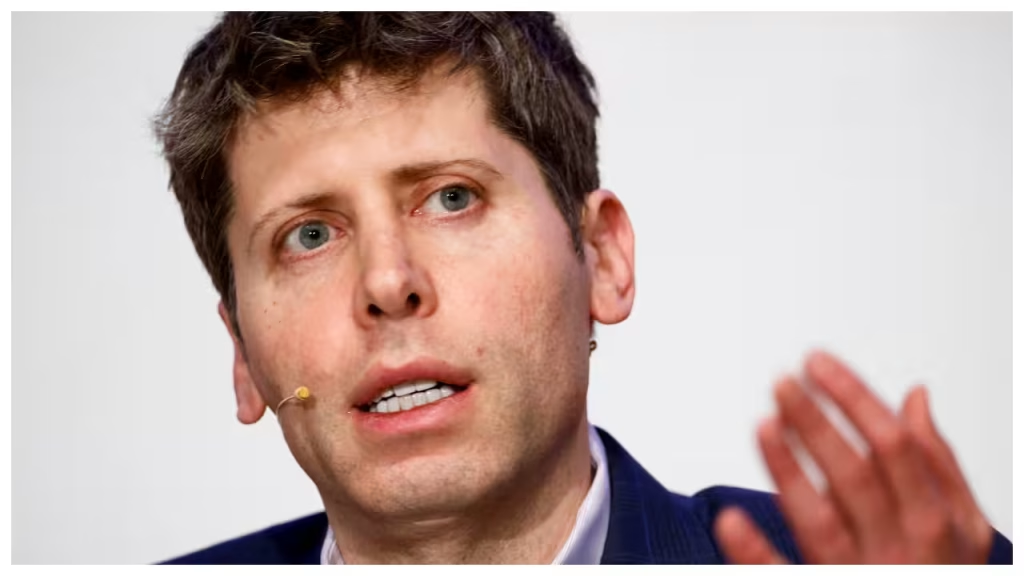Sam Altman’s Bold Outlook: AI Could Replace Him as OpenAI CEO
Sam Altman, CEO of OpenAI, has never shied away from discussing the disruptive future that artificial intelligence promises—especially when it comes to leadership roles like his own. In a recent podcast, Altman openly shared that he would take pride in being replaced by an AI-powered CEO and feels OpenAI should be the first company run entirely by artificial intelligence if the technology advances to that point. “Shame on me if OpenAI is not the first big company run by an AI CEO,” he remarked, adding that machines outpacing humans in high-level management could be just a few years away.

Why Altman Is Ready for the Transition
Altman often reflects on what it would take for an AI system to run OpenAI better than him, even stating that the time frame to see AI lead major departments might be in “single-digit years”. For Altman, this isn’t a threat—it’s a milestone. If AI is truly ready, he wants OpenAI to be the pioneer. His comments reflect his wider belief that AI’s rise will fundamentally reshape what people consider “real work.” As he noted, a farmer from fifty years ago might not recognize today’s office work as labor, and by extension, AI could redefine leadership roles too.
Life After OpenAI: From Boardroom to Farm Life
If and when AI takes over his job, Altman isn’t worried about what’s next. He’s already spent time on his farm, living simply, driving tractors, and picking produce—finding peace far from Silicon Valley’s high-stake races. Altman’s passion for farming predates the ChatGPT boom and shows he’s genuinely considering a hands-on life after tech leadership, a perspective he’s shared in interviews with global media leaders.
The Impact of AI on Human Jobs
Are Human Jobs at Risk?
The question of AI replacing human jobs is no longer just theoretical. Altman acknowledges that AI will disrupt the workforce, especially in knowledge industries. “In the short term, AI will destroy a lot of jobs. In the long term, like every other technological revolution, I assume we will figure out completely new things to do,” says Altman. He believes 30–40% of tasks handled by people today could soon be automated—though that doesn’t mean jobs will vanish; instead, roles will evolve, and new kinds of work will emerge.
Big Tech Layoffs and Restructuring
Major companies are already reshaping their workforces to adapt to AI and automation. IBM, Amazon, Microsoft, and Salesforce have all announced thousands of layoffs, citing the need to streamline operations and pivot towards high-margin AI-driven business models. Salesforce trimmed more than 4,000 roles, while Amazon’s cuts reached up to 30,000 jobs—marking the biggest restructure in its history due to AI’s influence on operations. IBM’s layoffs alone amounted to 2,700 roles in late 2025, with more companies following suit.
AI’s Mixed Impact: Experts Weigh In
Some experts, including AI pioneer Geoffrey Hinton, warn that AI’s progress could enrich tech billionaires while sidelining ordinary workers, potentially widening economic gaps. Meanwhile, Elon Musk foresees a future where work itself becomes optional, with robots and AI providing goods and services at nearly zero cost. Musk believes most jobs could eventually become hobbies, predicting the end of traditional employment as AI transforms society.
Society’s Response: Redefining “Real Work”
Altman and other thought leaders highlight that what society calls “work” has shifted radically over generations. Office tasks that didn’t exist decades ago are now standard, but they could eventually be automated, just as farming was mechanized during the industrial revolution. AI’s ability to automate routine, screen-based work means that professionals in IT, accounting, translation, and even basic legal research may soon see their roles change. This is especially true for jobs that are formulaic and repetitive, casting uncertainty over employment landscapes worldwide.




